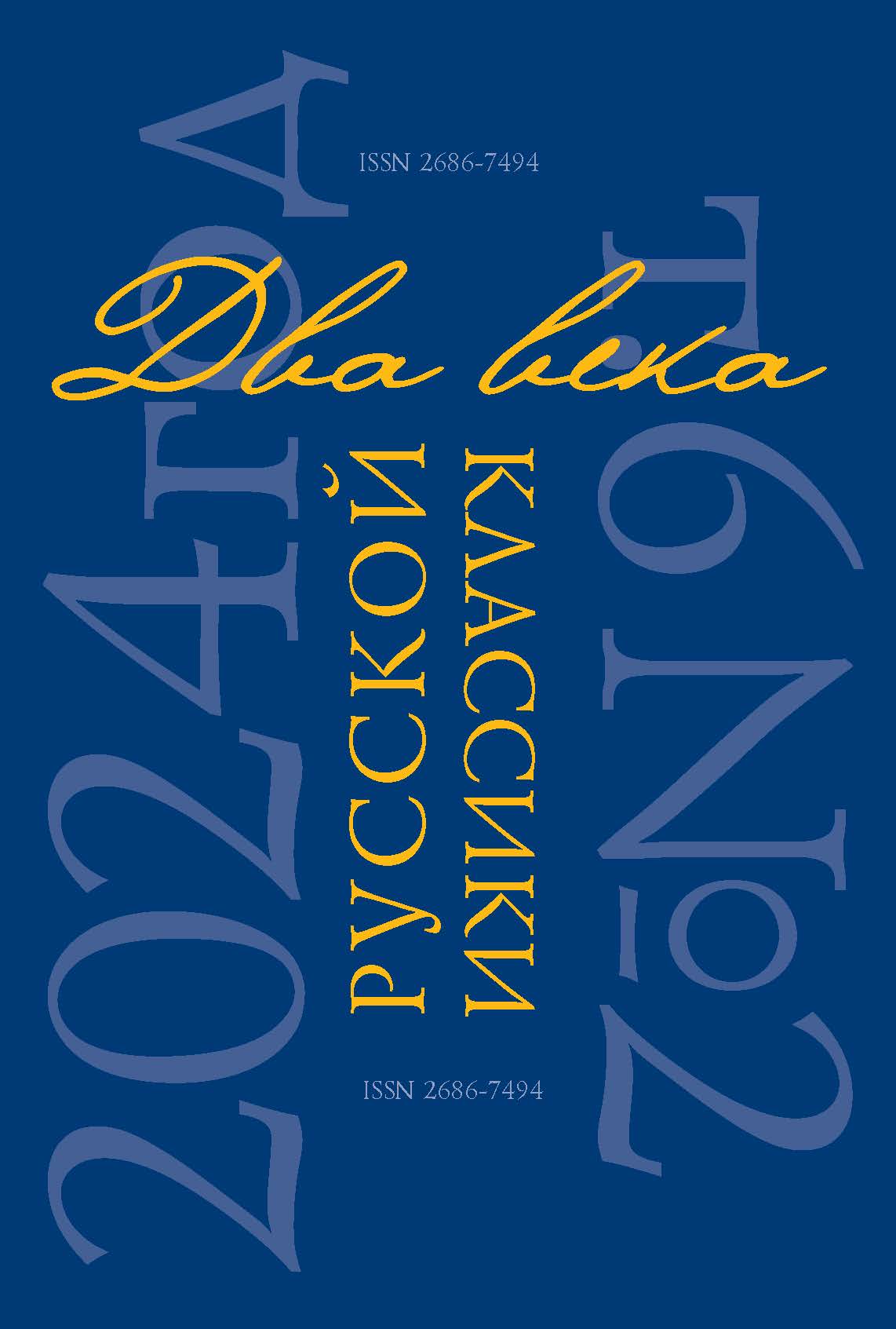Abstract:
The article examines Gogol’s apology for laughter in “Theatrical Travel After the Presentation of a New Comedy” (1836–1842). Gogol’s paradigmatic words that the only “honest, noble face” in “The Government Inspector” is laughter are considered in the context of the author’s intention. The play about the imaginary auditor appears as a component of two “revisions”: on the one hand, government revision, although obviously profaned in the course of the play, but inevitably implied by its ending; on the other hand, an “audit” of a “vulgar” society through laughter. The satirist writer and the official authorities, who equally carry out the task of persecuting vice, represent one-order phenomena that equally serve the spiritual improvement of society. The opinions of Gogol’s contemporaries regarding the definition of the picture depicted in the play and the genre of “The Government Inspector” itself as “comedy-tragedy” are in agreement. The article summarizes well-known and little-known reviews of the play by Stepan Shevyrev, Prince Pyotr Vyazemsky, Vasily Mezhevich, Konstantin Aksakov, Vissarion Belinsky, Konstantin Masalsky, and Ivan Ilyin, along with the opinions of the author himself.
References
Vinogradov, I. A. Letopis’ zhizni i tvorchestva N. V. Gogolia (1809–1852). S rodoslovnoi letopis’iu (1405–1808). Nauchnoe izdanie: v 7 t. [Chronicle of N. V. Gogol’s Life and Work (1809–1852). With Genealogical Chronicle (1405–1808). Scientific Publication: in 7 vols.], vol. 2, 4, 5. Moscow, IWL RAS Publ., 2017–2018. 672, 704, 928 p. (In Russ.)
Vinogradov, I. A. “Posluzhnoi spisok Gorodnichego v ʽRevizore’. K kharakteristike politicheskikh vzgliadov N. V. Gogolia” [“The Mayor’s Career in ʽThe Government Inspector.’ On Nikolai Gogol’s Political Views”]. Literaturnyi fakt, no. 1 (15), 2020, pp. 237–282. https://doi.org/10.22455/2541-8297-2020-15-237-282 (In Russ.)
Vinogradov, I. A. N. V. Gogol’ i tsenzura. Vzaimootnosheniia khudozhnika i vlasti kak kliuchevaia problema gogolevskogo naslediia [N. V. Gogol and Censorship. The Relationship Between the Artist and the Authorities as a Key Problem of Gogol’s Legacy]. Moscow, IWL RAS Publ., 2021. 864 p. https://doi.org/10.22455/978-5-9208-0659-8 (In Russ.)
Vinogradov, I. A. “Malorossiia i Velikorossiia v satire N. V. Gogolia” [“Little Russia and Great Russia in the satire of N. V. Gogol”]. Vestnik Kostromskogo gosudarstvennogo universiteta, vol. 26, no. 3, 2020, pp. 128–133. https://doi.org/10.34216/1998-0817-2020-26-3-128-133 (In Russ.)
Voropaev, V. A. “Okno v mir evangel’skikh istin: stikhiia russkoi narodnoi rechi v poeme N. V. Gogolia ʽMertvye dushi’.” [“Window into the World of Gospel Truths: The Element of Russian Folk Speech in N. V. Gogol’s Poem ʽDead Souls’.”] Problemy istoricheskoi poetiki, issue 11, 2013, pp. 108–120. https://doi.org/10.15393/j9.art.2013.374 (In Russ.)
Koshelev, V. A. “ʽMertvye dushi’ N. V. Gogolia v traktovke rannikh slavianofilov” [“ʽDead Souls’ by N. V. Gogol in the Interpretation of Early Slavophiles”]. Russkaia literatura, no. 3, 1976, pp. 82–100. (In Russ.)









